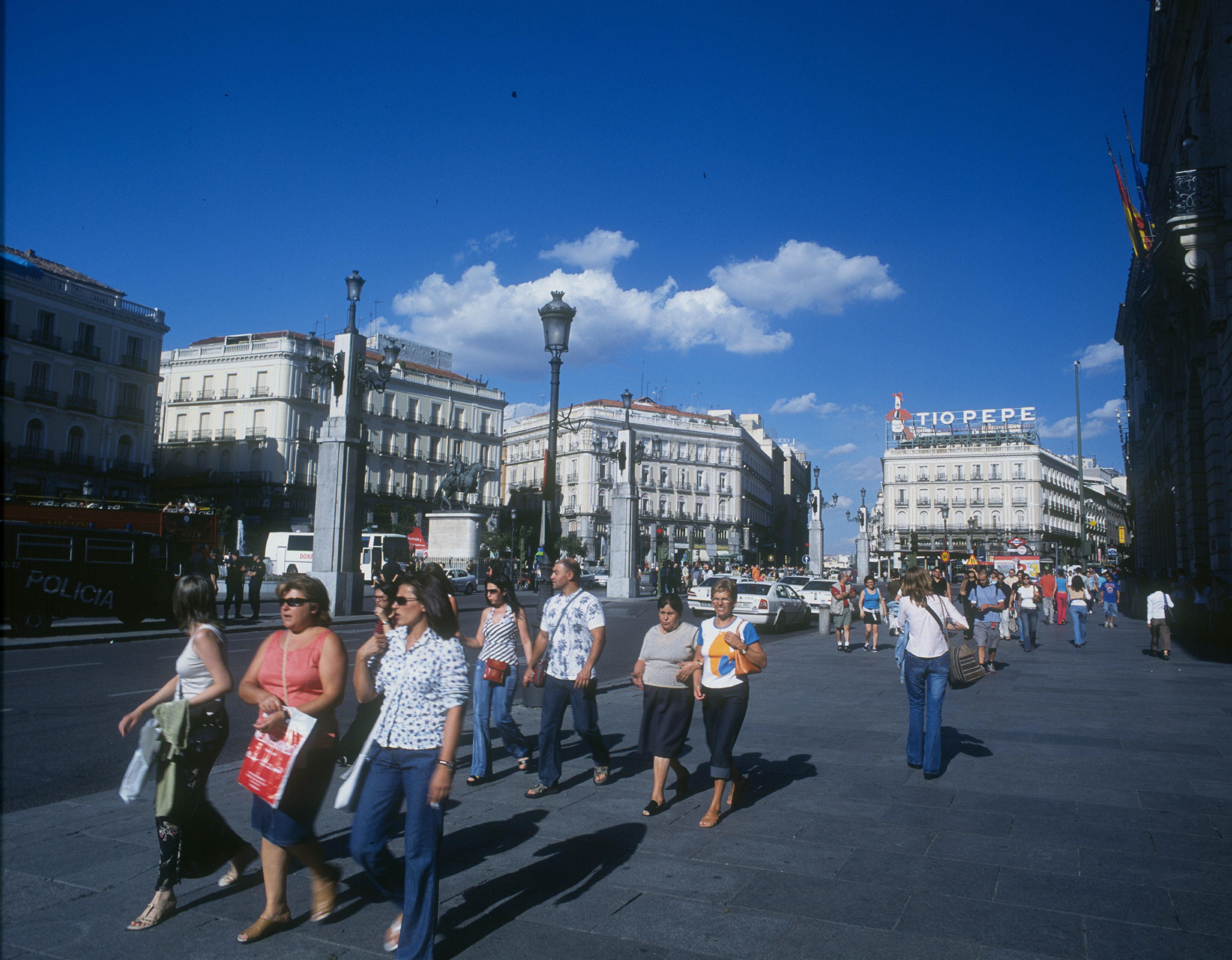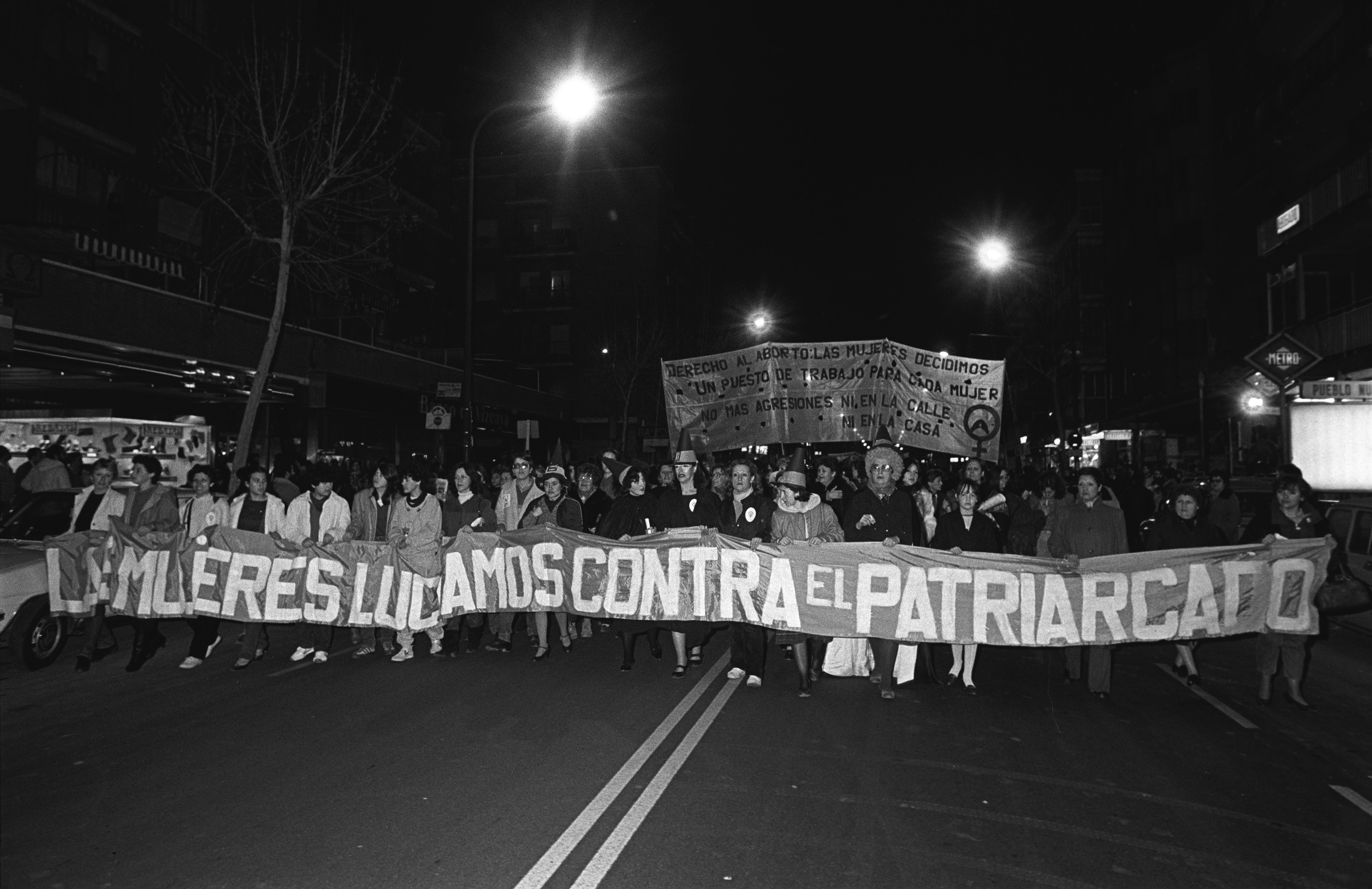In 1979 when I was 21, I dropped out of the University of Chicago. Instead of paying my tuition, I used my student loan check to buy a one-way ticket to Luxembourg and started a journey south. My plan was to stop for a few days to visit friends, who I had met some years before during a high school student exchange program, in Albi, a town of about 80,000 in Tarn, France. We were sitting in their garden when the phone rang. The rapid Spanish-speaking voice on the other end was Maria-Theresa, who they had also met as exchange students in Madrid. She was pregnant and heading to France to get an abortion. In fact, she was arriving the next day.
We picked her up at the train station and went directly to the office of Dominique Malvy, the local feminist gynecologist. My friends knew Dr. Malvy because it was a small town, but also because they were in a collective together, trying to start what was then called a “battered women’s center” in Albi. Maria-Theresa had scars on her stomach from the boiling water that she had poured on herself trying to abort the fetus.
In Spain at that time, fascism had ended with the death of dictator Francisco Franco, who died four years earlier, and Prince Juan Carlos was facilitating a transitional constitutional monarchy. The first free election was in 1977, producing a fragile coalition, and no one really knew what was possible in Spain or where the country was going—certainly not for women.
This was a time of global feminist collectives
Malvy explained that Maria-Theresa was probably 22 weeks pregnant and that it would be impossible for her to conduct the procedure. Though abortion on pregnancies up to 10 weeks had been legal in France for two years, Malvy didn’t own the necessary equipment. So she recommended a clinic in London. Albigoises (women of Albi) collected money, and I was selected to accompany Maria-Theresa because I spoke English (she did not speak French or English, and I did not speak Spanish). So we got on the train and went to London.
The only person I knew in London was the mother of a man named David, who I had met in Chicago when he tried to recruit me to the Spartacist League, a Trotskyist organization. He was ultimately expelled and we became friends. His mother, Dorothy, was a feminist writer and activist, and she took us in. The next morning, we took a taxi to the clinic, out in a wooded area on the outskirts of the city. The cab driver was familiar with the place, which surprised me. He said that it was owned by some doctors from Spain. When we arrived, it all made sense, because the place—basically an abortion mill, though clean and operating by British standards—was packed. I was expecting some demure living room, but this was a large facility, with probably 40 women, many of them speaking Spanish. What I came to understand as I traveled back and forth from Dorothy’s to the clinic, as Maria-Theresa healed from her procedure, was that according to guards and patients, there were round-trip charter flights leaving Spain every month, filled with women seeking abortions. This was despite laws forbidding Spanish citizens from traveling to obtain abortions. The setup was so blatant, however, that tickets could be purchased at the Corte Inglés, which is like the Macy’s of Spain. Each person I spoke to paid a different rate, with all the costs being high and all the profits going to men. Spain was an economically poor country at the time, still rural and still reeling from the consequences of fascism.
After Maria-Theresa got her abortion, she went back to Madrid. I reported back to the women of Albi, and it was determined that two of us should go to Spain and contact the feminists there, to tell them about the nature of this clinic and try to set up an alternative in France. The Albigoises were willing to receive Spanish women who were pregnant up to 10 weeks and accommodate them for an abortion there and in the neighboring big city of Toulouse. The South of France had a long history of harboring Communist and anarchist refugees from the Spanish Civil War, and this would be the next rendition. This was a time of global feminist collectives, and everyone just assumed that Spanish counterparts were there to be found.
My friend Genevieve and I were selected to go—she spoke fluent Spanish—and we were given a box of diaphragms and spermicidal cream to bring as gifts. After decades of a complete ban, contraception methods had just been decriminalized in Spain, but they were still hard to obtain. The diaphragm was the most symbolic and popular mode of contraception supported by feminists, because it had no side effects and could be inserted and removed at will. We took the train across the border; it was my first time in Spain. Though in transition to democracy, it still had a full leg stuck in fascism; the Guardia Civil, Spain’s military police force, were still associated as Franco’s henchmen, his enforcers and torturers of opposition. So when they appeared at customs with their signature tricornio hats worn flat side out, Genevieve and I got very nervous. They looked at my U.S. passport and waved me through, not opening my suitcase filled with diaphragms. But when they got to French Genevieve, they opened her valise and discovered tubes of spermicidal cream. Oh, shit. I stood on the other side of the border, watching as they asked her aggressively, “What is this?” Genevieve took out one tube, unscrewed the top, and put a bit of cream on her finger. Then she massaged it into her scalp. “Cosmetica!” she said, smiling. They waved her on.
We got a small, dark hotel room in Barcelona and started scouring leftist meetings that might attract women. Genevieve explained that some of the older people in attendance had been in exile for years, and were only now getting home to Spain. I watched an old woman tell her story of flight and return before a room of workers. I did not understand Spanish, but I grasped her bitterness, anger, relief, and hope. At the end of her talk, everyone stood and cheered, and the whole room sang “The Internationale.” During the social period after the event, Gene and I just started telling people who we were and what we were looking for. One short woman in glasses asked us a few questions, and then moved on to some other conversations. But by the end of the night, she returned and handed us a piece of paper with an address on it and instructions to visit the following evening.
We arrived in a seemingly deserted part of Barcelona. Totally silent. This must be a joke. We quietly entered the empty building and went up the dark stairs. At the top floor, we knocked on a door and entered into a new world. It was a series of waiting rooms crammed with women. The thing about Spain during that period, there was little immigration and few tourists. The wide variety of racial and ethnic backgrounds of Spanish people was apparent in those rooms: European, Arab, Romany, African, Nordic, and Indigenous women sat in chairs, some with somber male partners, some with children, most alone. Then we saw the short woman with glasses we had met at the leftist meeting. She warmly squeezed us into a corner, and we talked quickly. What we learned was that this underground feminist abortion service was run by three Argentine Communist women who were in exile from Fascist Argentina, still under the rule of dictator Jorge Videla, conducting his Dirty War, which would result in the murder and disappearance of around 30,000 people. Speaking quickly, we worked out that they would start referring women less than 10 weeks pregnant to the South of France to try to get abortions women to women, bypassing the profiteers.
For the next year or so, women arrived from Spain by train to Toulouse Station. They risked arrest, as not only was abortion illegal in Spain, but going out of the country to get an abortion was illegal for Spanish citizens. As is the case in Texas today, abetting an abortion was also illegal. So the signal we decided on was for these women to carry a copy of the French magazine Des Femmes. Their French guides would approach, and they would be brought to the offices of gynecologists throughout the South of France. What was so interesting was the way that growing up in fascism had affected these Spanish women who had to take such a risk to get control of their own reproductive lives. Despite the moments of reality that they shared with each other and with their French hosts, for many, this abortion was a dissociated experience. Their husbands and friends at home often had no idea of what they were doing. Soon, French women started to ask their Spanish sisters to speak to a referred pregnant woman, wanting reassurance before committing to the experience. But the act of support proved difficult to complete. The vast majority of women who received abortions refused to talk. Once they got their procedures, they just washed their hands of the experience, hanging up on pregnant women who called for support. In some cases, women even denounced the Argentines once they returned home to their Catholic and fascist contexts.
The signal we decided on was for these women to carry a copy of the French magazine Des Femmes.
As heartbreaking as that was then, I understand it so much more clearly now. We see it in white women who voted against their own gender interests, in men who have historically refused to join the abortion-rights movements over the years, in the weird expectation today from the country that somehow “women will revolt” instead of the rest of us taking responsibility for our collective well-being. Even though I am lesbian and was not personally implicated, I returned from these experiences to witness the enactment of the 1979 Hyde Amendment, which barred federal funding for abortion use in all but seven U.S. states. I then joined the U.S. reproductive rights movement. I saw the unholy alliance between the Republican Party and evangelicals in order to get Ronald Reagan elected, and then watched the Tea Party people define the party entirely.
But it is this question of denunciation that brought these long-ago experiences full circle and back to life for me. The recently leaked draft of the Supreme Court’s decision to overturn Roe v Wade denies American women their Constitutional rights. But laws in states like Texas go even further and seek to implicate and punish those who assist people in getting the abortions that they feel they must have, just like the Spanish fascist laws. Forced motherhood is not enough for these people; they want to punish women for asking for help, for being connected to others, for disobeying. Hopefully, we will all soon be similarly accused.
Source: Read Full Article






